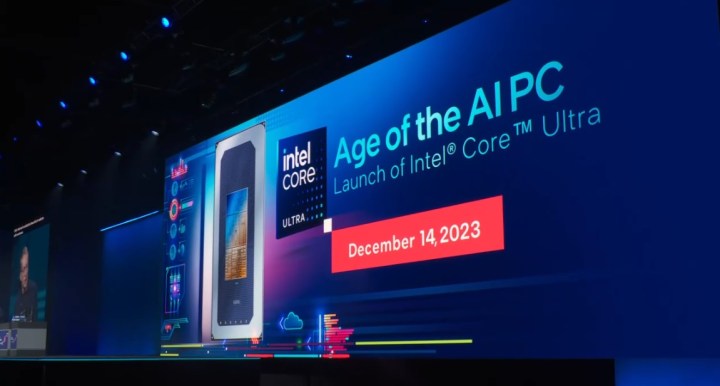
Did we just get a confirmation about the release time frame for Windows 12 — and from Intel, of all sources? It seems that way. Intel spoke about its predictions for 2024, indicating that it expects 2024 to be a good year for client processors. That’s huge for Intel because the next generation of its top processors, Meteor Lake, is set to come out in 2024. However, if Intel is right, it might be a big year for Microsoft, too.
The information comes from a transcript of the Citi 2023 Global Technology Conference. Most of it wasn’t too exciting — fireside chats aren’t often that interesting to the masses — but there’s a little comment in there that piqued our interest.
“We actually think 2024 is going to be a pretty good year for client [processors], in particular, because of the Windows refresh. And we still think that the installed base is pretty old and does require a refresh and we think next year may be the start of that, given the Windows catalyst. So we’re optimistic about how things will play out beginning in 2024,” said Intel, first shared by PCGamer.
The mysterious term “Windows refresh” sounds quite ambiguous, and Windows 12 is not mentioned at any point. However, it’s hard to imagine Intel getting excited about any particular Windows update unless it’s actually the new version of the operating system. After all, Microsoft releases patches pretty regularly, but a redesigned Windows could go well with the redesigned Meteor Lake. The chip is said to have a completely new architecture, with separate compute, GPU, IO, and AI dies.

Intel Meteor Lake might be laptop-only, but Arrow Lake-S is also said to be coming out in the second half of 2024 for desktops, so Intel has a big year ahead. If the new chips provide great integration with Windows 12, that’d be a strong reason for Intel to expect an increased adoption, both for the new CPUs and the fresh OS.
Just as Intel’s plans are still a bit hazy, we don’t know much about Windows 12. In a way, it almost feels like Microsoft has been soft-launching Windows 12 for a while just by updating Windows 11. Microsoft Copilot and its close integration into the OS is almost worthy of being a
Windows 12 is likely to make the tie to Copilot even stronger, building AI into the very foundation of the operating system. Meteor Lake’s dedicated neural processing unit (NPU) on the SoC plays into that very well.
Windows 11’s adoption has been slowing down lately, both in the consumer space and for businesses. Windows 12 will probably serve as the final nail in the coffin of Windows 10 and speed up the adoption process. Will it come out in 2024 as Intel seems to predict? We’ll have to wait and see, but Intel’s little teaser seems like more than a throwaway comment.
Editors' Recommendations
- It just became the perfect time to buy a last-gen Intel CPU
- How Intel and Microsoft are teaming up to take on Apple
- Nice try, Intel, but AMD 3D V-Cache chips still win
- Reviewers agree: Intel’s latest chip is truly ridiculous
- Intel just launched the ‘world’s fastest’ CPU




